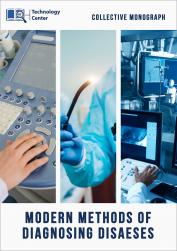Diagnosis and monitoring of the functioning of the human nervous system
Synopsis
The significance of the study of the main nervous processes and typological combinations for deepening the general idea of the state of the body, as well as the possibility of using their indicators in the diagnosis and monitoring of the nervous system of young people, is analyzed. Various contingents of the population were examined: students, athletes, mobile operators, people with deprivation of auditory function, post-COVID syndrome and psychophysiological lability developed under martial law. It was found that when performing real activity, individual typological properties are manifested, which determine the current psycho-emotional background, the speed and efficiency of sensorimotor reactivity, and the effectiveness of mental performance. The features of information processing by subjects with different gradations of functional mobility of nervous processes are reflected. It was found that the deprivation of the auditory function, post-COVID syndrome, psychophysiological lability, developed in a state of war, significantly reduce the level of the course of nervous processes and the possibility of processing information.
The evaluation scales of neurodynamic and sensorimotor functions proposed for use in the medical field can be used to optimize the diagnosis and increase the effectiveness of monitoring neurological morbidity, including in people with special needs. Taking into account the peculiarities of neurodynamic and sensorimotor functions, they will also be useful in the physiology of labor, the professional selection of healthy people and the individualization of educational trajectories in higher education.
Downloads
Pages
Published
Categories
License

This work is licensed under a Creative Commons Attribution-NonCommercial-NoDerivatives 4.0 International License.








